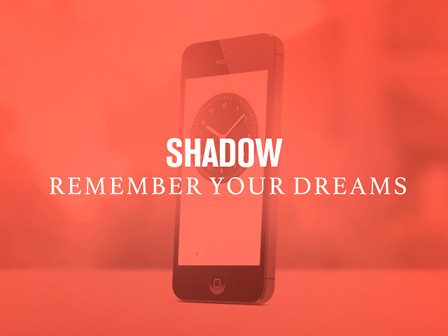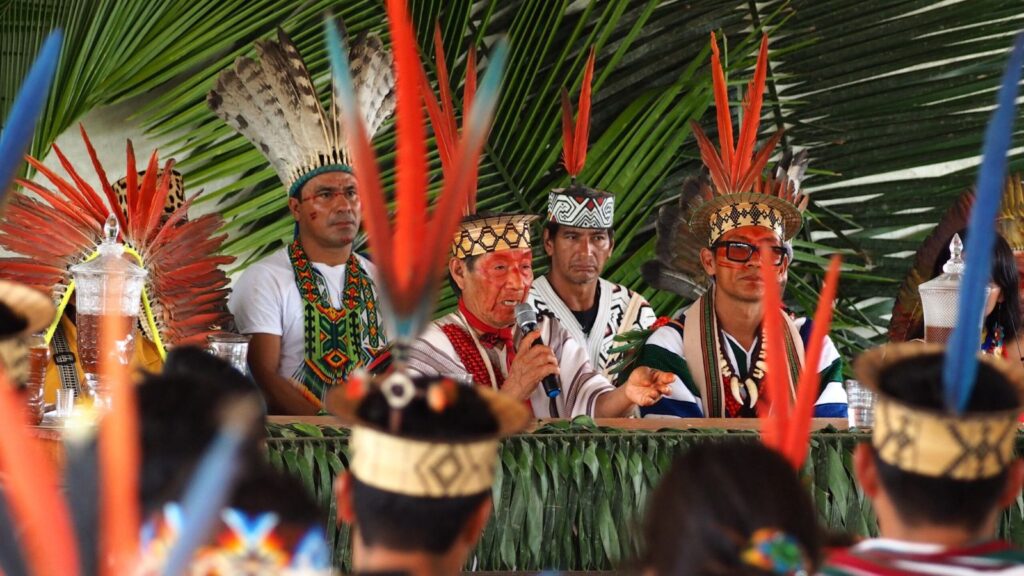About a year ago, Hunter Lee Soik cold-called me and said he wants to build a new dream app called SHADOW that could not only make it easy to record dreams, but also share them socially in order to create a massive global dream database. To be honest, I have heard a lot about this kind of idea in the past, and so far hadn’t been all that impressed with what’s available.
As Hunter talked about how he came to find his dreams after years of neglect, I was drawn in by his authenticity. Later, I learned that he has some distinctive business experience that gives his idea a real chance to make a difference in the world. For starters, he combines an interest in technology and fashion and has designed “experiences” for some major artists and brands, including Stella McCartney, Art Basel as well as Kanye West and Jay-Z’s Watch the Throne tour. He’s also formed the Wardenclyffe Institute, an innovation consulting group that forms brief networks to solve problems. I realized that Hunter might actually be able to pull off this project; in fact, I don’t know anyone else who could.
So, SHADOW is a concept that just started its initial crowdfunding stage. Once built, it will be a smart alarm clock app that helps users remember and record their dreams…and in the process, build what could be the world’s largest searchable database of dream content.
As a dream researcher, the potential here makes me a little giddy. That’s primarily why I signed up to help Hunter as a dream expert and advisor. This week I sent him some questions in my role as a regular contributor to Reality Sandwich, to dig deeper into his vision for this app and what it could do for the world’s dreamers and visionaries.
Here’s the conversation that resulted:
Ryan Hurd: Hunter, your resume is really intense. Personally I’m wowed with your history of working with “brand experience” for performers like Jay-Z and Kanye. Your latest project, SHADOW, in contrast must make your entrepreneurial friends do a double-take and say “WTF… dreams, really?” What’s the story behind this project?
Hunter Lee Soik: The idea for SHADOW was sort of a byproduct of designing brand experiences. I loved that work–it’s incredibly stimulating. But it’s also a 24/7 kind of job, and I rarely slept. So when I finished up my work with the Watch the Throne tour, I decided to take a break. And I did what most people do when they suddenly have a huge amount of free time: I slept. A lot. It had been years since I was sleeping deeply, hitting those REM states where the real dream magic happens, and now suddenly I was having all these incredible dreams, and I wanted to remember them. I checked out the apps, but nothing really spoke to me. They didn’t look how I wanted them to look, or function how I wanted them to function. I wanted a more social experience. So I decided to make one.
When you got some rest and your dreaming came back, what were your dreams like? How specifically did your dream experiences–good or bad–relate to your creative process that has led to the idea of SHADOW?
They were really inspirational, which has always been the case with the dreams I remember. What was different this time was that I was paying attention to them. And I quickly realized that I didn’t even have a way to capture my dream experiences on a pragmatic level, let alone interpret them. So the idea of SHADOW is to be a platform for gathering and sorting through the data. Once it’s built, I’ll be going through the process of understanding and interpreting my dreams on a deeper level alongside the rest of the SHADOW community.
How has remembering and sharing your dreams personally improved your life?
It’s allowed me to identify short and long term patterns in my life, which has opened up a lot of different avenues for self-knowledge. For one, I taught myself to lucid dream. It’s amazing what a little bit of attention can yield. At this point, I’m lucid dreaming about 10% of the time. Before I started this project, I wasn’t really thinking about my dreams or how I might use them; now I’m able to.
Was there a particular dream that catalyzed your idea for SHADOW?
The dream that sparked the idea is the one I’ve been using in the alpha version of the app. You can listen to it here. It’s about me going to a party at the Reichstag in Berlin, and being told by the doorman that it’s a private party, and I can only get in if I find Michael Jordan. So I wander the streets, find Michael, and we head into the party together, to find it decorated with a bunch of 3D holograms of his most famous dunks. This seems like a typical dream, with a loose narrative united by a bunch of different random things from my life. But when I looked at it deeper, it was bringing different pieces of my life together. Things I’d experienced earlier that day with bigger moments about access and transparency. There were a lot of layers there, and I really liked wading through them.
Nice. I love how dreams that start out looking random reveal themselves to have deeper levels. But how does keeping track of your dreams fit in with the Quantified Self movement? Collecting dreams aren’t like counting calories or measuring the miles you’ve run today… they’re so personal, and subjective.
Right now, Quantified Self is all about measurement: using new forms of technology to collect data on different areas of your life. But the movement to use data to better understand ourselves really has three parts: technology, psychology and biology. QS has really mastered the technology part, but hasn’t yet moved onto the other two. That’s where SHADOW lives.
Can you elaborate?
We want to bridge the gap between technology and psychology, to jumpstart that natural evolution from quantified self to understood self. So the big question is: what do we do with this data? How does it help our lives? What we decided was actually pretty simple: to scale it, we need to move beyond individuals and build a community. To make our dream data meaningful, we need to be able to contextualize it with data from other people.
I like that. So it’s not just about making a personal data dump, but creating community that also results in personal illumination as well as collective patterns … that’s something you don’t often hear about in the digital era when it comes to apps and devices.
Yeah, well we have the technology to create a platform that can handle this kind of global data cloud. We’re also fortunate that we’re focusing on a data set that doesn’t even exist yet. Our subconscious minds– our SHADOW–are really under examined. But current dream science suggests otherwise.
Can you say more about the new science of dreams that you’re hoping to employ?
We problem solve in dreams, we process our experiences, we make long-term memories, and we come up with crazy ideas. There’s a reason we call our biggest, most bombastic goals “dreams”–it’s because our dreams are where this magic happens. We really believe that recognizing this potential–and being bold enough to harness it–is key to our future.
Speaking of big dreams and goals, I heard that you attended a Summit Series conference, an innovation gathering for cultural creatives and innovators that meets on the side of a mountain in Utah. I also heard that you were assigned to sleep in a tent with Daniel Pinchbeck as your roommate. Did you and Daniel get to connect?
I got Daniel’s book 2012 from a friend back in 2006, and I was totally blown away. So fast forward to this year, I’m at SUMMIT series and I see him in the crowd. And I kinda froze, I always wanted to meet and tell him I admired his work (keep in mind I never freeze; I spent a decade working in fashion and luxury goods and never missed a beat). There was never really a good opportunity for me to say hello. When I got back to my room that night, my roommate was already asleep. The second day was much of the same, we didn’t get a chance to talk, and I was asleep by the time my roommate came home. As it turns out, that roommate was Daniel Pinchbeck. I didn’t know it at the time, cause it was pitch black in the tent.
And the next morning, you look over, and there he is. So did you ever get a chance to tell Daniel you admire his work?
Yeah, I did. Thing like this are always reminding me how extraordinary the universe is.
Many Reality Sandwich fans are fascinated by and involved with projects that support the concept that a change in global consciousness can ensure a better, more sustainable future. How do you think SHADOW–and working with dreams in general–can be part of this shift?
When we remove the barriers of reality, when our mind can really wander, we start to push the boundaries of our own potential. Over that last few centuries, our culture has advanced at such a rapid rate that we’ve accelerated some really wicked problems, problems like climate change and income disparity that seem insurmountable. But our technology has also advanced, and we’ve never been more prepared to tackle them. To do it, though, we’ll need to come together and dream big. That’s where SHADOW can help. By helping people recall and spread those wild ideas they have without the constraints of normal rational awareness, we can unlock some important insights.
Love it. Not that rational awareness is useless, we don’t want to throw it away, but that other ways of thinking can be just as vital to our lives, like dreams, visions, creative fugues, etc, and can make way for radical change.
Exactly. Ideas of that magnitude almost always sound crazy at first, and our world needs more of them.
Thanks Hunter. Good luck with the Kickstarter campaign. And good dreaming!
Thank you, Ryan!















